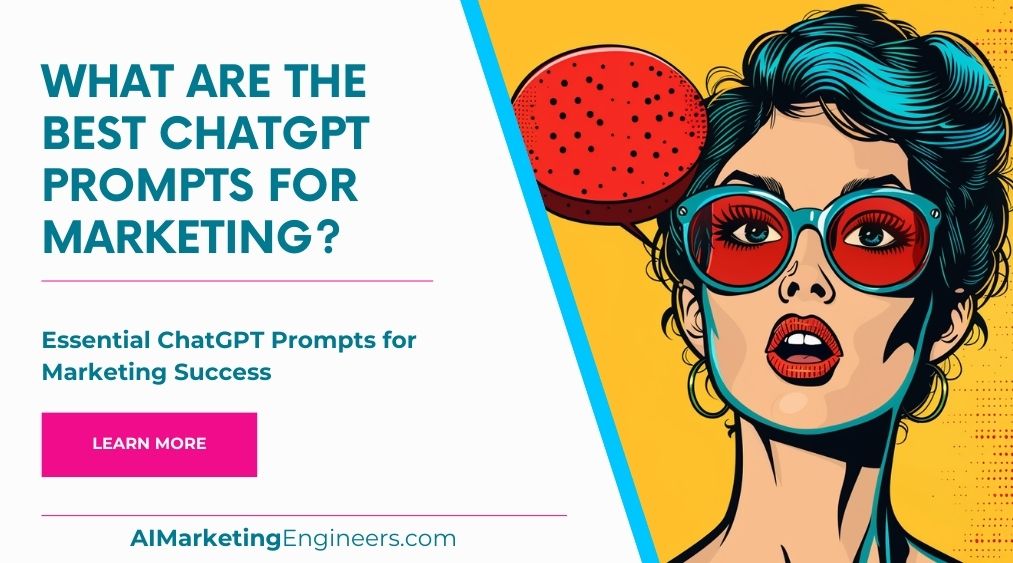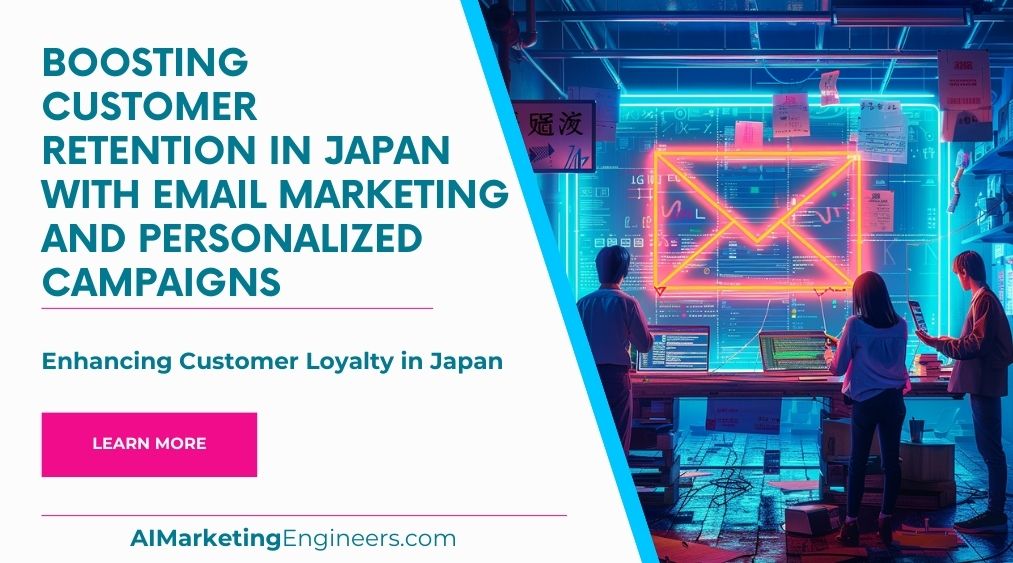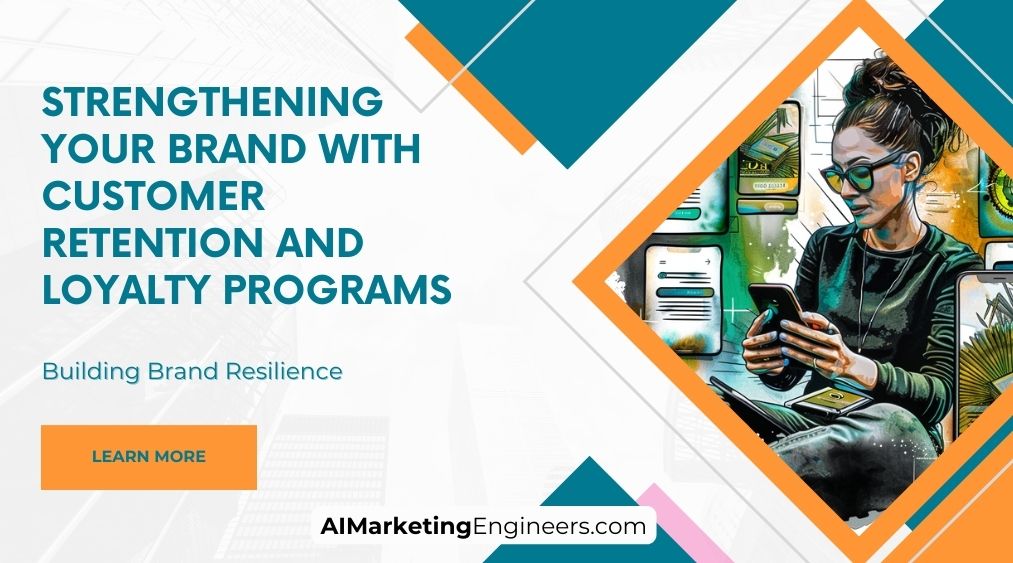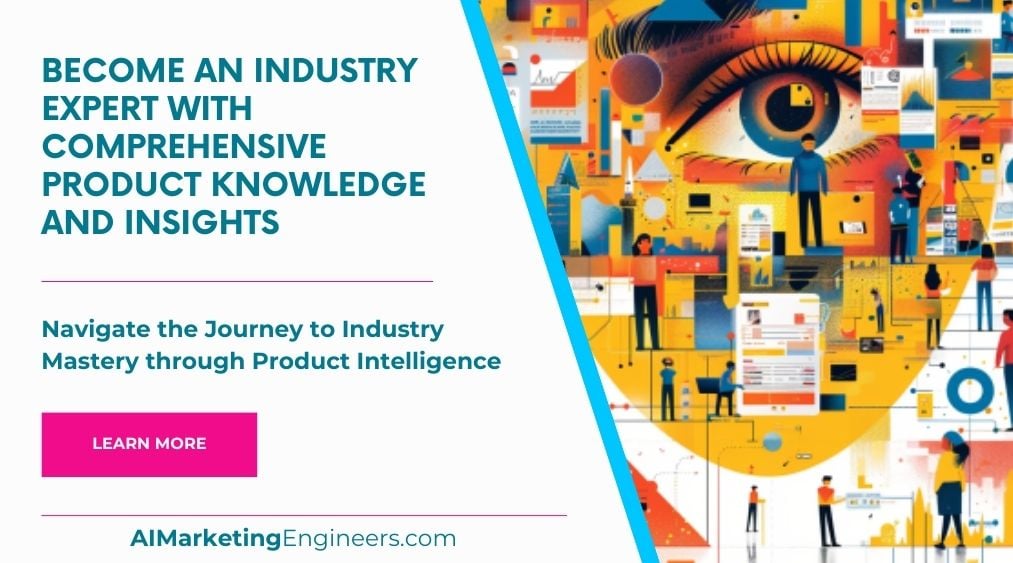Key Takeaways
✅ Understanding the Customer Journey and Resonance: Mapping out the customer journey is crucial for identifying key touchpoints and pain points. This targeted approach ensures your message resonates with the audience, cutting through the noise.
✅ Crafting Compelling Headlines and CTAs: Effective headlines draw readers in, while clear and direct CTAs guide them towards desired actions. Ensure headlines are both keyword-rich and emotionally appealing.
✅ Providing Value and Leveraging Feedback Loops: Answer burning questions and offer insights to position yourself as a trusted advisor. Use feedback from comments, reviews, and social media to refine your content strategy continually
Introduction
What does it take to turn casual readers into loyal customers? Mastering the art of conversion through content marketing is more crucial than ever in today's saturated digital landscape. Far beyond just churning out articles, the focus must be on creating meaningful connections that genuinely resonate with your audience. This article delves into innovative strategies that challenge common beliefs and address popular fears, unlocking the secrets to effective content marketing. We'll cover how to foster engagement, leverage feedback, and employ cutting-edge tactics to maximize revenue, ROAS, and ROI. Get ready to uncover actionable insights that will elevate your marketing strategy to new heights.
Top Statistics
| Top Statistics | Insight |
|---|---|
| 85% of marketers acknowledge the transformative impact of generative AI tools on content creation strategies. | Generative AI tools are revolutionizing how content is created, making content creation faster and more efficient. |
| 91% of B2B marketers use content as an important tool for marketing. | This statistic underscores the importance of content marketing in the B2B space, demonstrating its critical role in reaching target audiences. |
| Video content leads in performance among content marketing formats. | Video content's popularity highlights the need for marketers to invest in dynamic, engaging formats to captivate audiences. |
| 70% of Gen Z consumers express a stronger trust in brands that showcase diversity in their advertising. | Gen Z values diversity, making inclusive advertising a key factor for brands wanting to build trust with this demographic. |
| Content marketing trends are witnessing a significant shift, driven by data analytics and AI integration. | Data analytics and AI are guiding the future of content marketing, helping marketers make informed decisions and optimize their strategies. |
Compelling Stories: The Core of Content Marketing
Crafting engaging stories is crucial for effective content marketing. Stories should address audience pain points while providing valuable insights. Are you aiming to solve your audience's problems? Make sure your content is relatable and shareable, making it something that readers want to spread. This combination not only attracts readers but also keeps them coming back for more. Incorporate emotional elements to connect on a deeper level. Real-life examples and case studies can make your stories more credible and impactful. Continuously refine your storytelling techniques to keep your audience engaged and invested.
Quality Over Quantity
Many marketers fall into the trap of churning out content just to fill the calendar. However, well-researched and thoughtfully written content will resonate more with your audience. Why waste effort on hundreds of posts when a few high-quality ones can create a bigger impact? Eye errors and complex jargon can deter readers, so aim for error-free and easy-to-understand material. Focusing on depth rather than breadth ensures each piece adds real value. High-quality content can position your brand as a thought leader in your industry. Consistent excellence builds trust and long-term loyalty with your audience.
Know Your Audience
Do you really know who you're writing for? Conducting thorough audience research can reveal critical demographics, preferences, and pain points. Developing buyer personas enables you to tailor your content more precisely to meet your audience’s specific needs and interests. This targeted approach is far more effective than a one-size-fits-all strategy. Engaging with your audience through comments and social media can provide additional insights. Regularly updating your personas ensures your content stays relevant. Understanding your audience's journey helps in creating content that guides them effectively through the sales funnel.
Enhance Content with Visuals
Visuals can significantly enhance your content. Incorporate images, infographics, and videos to break up heavy text and illustrate key points. Did you know content with visuals gets 94% more views? Visuals capture attention, making your content more engaging and increasing its shareability. Use high-quality, relevant visuals to support your message. Infographics can simplify complex information, making it easier to digest. Videos can provide a dynamic way to convey your message and engage your audience.
Consistency Is Key
A regular posting schedule builds trust and improves brand recognition. Is your audience expecting new content every week, or are they left guessing? Establish a consistent brand voice and messaging across all your content to create a cohesive reader experience. Consistency in voice and frequency matters more than you think. A content calendar can help maintain regular posting. Consistent branding helps in reinforcing your message and values. Regular updates show your audience that you are active and engaged.
Engage Your Audience
Engagement goes beyond content creation. Encouraging user-generated content through contests, surveys, or challenges can boost your interaction levels. Are you listening to your audience? Responding to feedback and questions shows that you value their input, fostering a more loyal reader base. Engaging with your audience in comments and social media builds a community. Personalized interactions can increase loyalty and trust. Encouraging discussions can lead to valuable insights and ideas for future content.
Optimize with SEO
Utilizing SEO techniques effectively incorporates relevant keywords without compromising the quality of your content. Optimizing images with descriptive alt text and ensuring your website is mobile-friendly can improve your search rankings. Are you visible enough to your audience when they search online? Regularly update your SEO strategies to adapt to changing algorithms. High-quality backlinks can improve your site’s authority. Conducting keyword research helps in targeting the right audience.
Promote Effectively
Promotion is as important as content creation. Use social media, email marketing, and partnerships with influencers to promote your content. Are you maximizing the reach of your content? Repurposing it into different formats can cater to varying audience preferences, extending its life and reach. Collaborate with industry influencers to broaden your reach. Utilize paid promotion to target specific demographics. Consistent promotion ensures your content reaches its full potential.
Measure and Improve
What’s working and what’s not? Tracking metrics like website traffic, engagement, conversion rates, and social shares can provide valuable insights. Use this data to adapt your content strategy continually. Are you monitoring your performance effectively? Refining your approach based on measurable insights is essential for long-term success. Regularly review your analytics to identify trends. Use A/B testing to determine the most effective strategies. Continuous improvement is key to staying ahead in content marketing.
AI Marketing Engineers Recommendation
Recommendation 1: Optimize Content for Mobile Devices: With over 54% of global web traffic coming from mobile devices (Statista, 2021), it’s crucial to optimize content for mobile devices. Ensure that your website and content are responsive, which means they adjust seamlessly to different screen sizes. A mobile-first approach not only improves user experience but also boosts conversion rates. Text should be easy to read without zooming, images should load quickly, and calls-to-action (CTAs) should be prominently displayed and easy to tap. Implementing these changes can significantly reduce bounce rates and increase visitor engagement on your site.
Recommendation 2: Leverage Video Content for Increased Engagement: As per a recent report by Wyzowl, 86% of businesses use video as a marketing tool in 2021, and 93% of marketers who use video say it's an important part of their marketing strategy. To master conversions through content marketing, it's essential to leverage video content for increased engagement. Videos are highly effective at conveying complex information quickly and engagingly, which can lead to higher retention rates. Use various formats like explainer videos, customer testimonials, and live streams to keep the audience entertained and informed. Additionally, videos can boost your SEO efforts, as pages with video are 53 times more likely to rank on the first page of Google search results (Forrester Research).
Recommendation 3: Personalize Content with AI-driven Insights: Incorporating artificial intelligence (AI) into content marketing strategies allows for personalizing content with AI-driven insights. According to a survey by Evergage, 88% of marketers say their customers and prospects expect a personalized experience. AI can help analyze customer data to deliver tailored content that meets the individual preferences and behaviors of users. Tools like HubSpot, Marketo, or even platforms with built-in AI capabilities like WordPress plugins, can track user behavior and interaction patterns to recommend relevant content. This not only enhances user experience but also improves conversion rates by making connections feel more meaningful and targeted.
Relevant Links
- Unveiling the Secrets of Successful Ad Testing and Creative Optimization
- Master the Art of Crafting Compelling Content and Storytelling
- Enhanced Audience Research and Buyer Persona Development
- Optimizing SEO for Maximum Visibility and Engagement
Conclusion
In mastering the art of content marketing, one can unlock the secret to successful conversion. By crafting engaging stories that touch on audience pain points and deliver valuable insights, you make your content more relatable and shareable. Focusing on quality over quantity ensures that each piece resonates deeply with your audience, providing well-researched, thoughtfully written content free from errors. Knowing your audience through detailed research allows you to tailor your message effectively, while visually appealing components like images and infographics enhance engagement. Consistency in posting and maintaining a steady brand voice not only builds trust but also strengthens brand recognition.
Encouraging user-generated content and responding to feedback fosters a sense of community and value. Leveraging SEO techniques is essential for visibility, while effective promotion via social media, email marketing, and collaborations extends your reach. Finally, measuring and adapting based on performance metrics helps refine your strategy continuously. By concentrating on these foundational principles, you not only create compelling content but also master the art of driving conversions, setting the stage for sustained success.
FAQs
Question 1: What is content marketing?
Answer: Content marketing is the ongoing process of creating useful, informative, entertaining, and relevant digital assets to meet the needs of a unique and engaged audience, building trust, authority, and brand awareness.
Question 2: Why is content marketing important?
Answer: Effective content marketing represents your brand in a wider conversation, inspiring brand loyalty, establishing trust, and addressing every part of the sales funnel.
Question 3: What is a content marketing strategy?
Answer: A comprehensive content strategy addresses overarching goals, identifying, testing, and optimizing tactics to deliver content to the right audience at the right time.
Question 4: What is the difference between content marketing and SEO?
Answer: Content marketing is the art of delivering information to the target audience, while SEO is the science of optimizing content for search engines, involving keyword targets, metadata, links, site speed, and more.
Question 5: Does SEO come first, or does content marketing?
Answer: Typically, SEO comes first, ensuring a solid website foundation before using content marketing.
Question 6: Is content marketing only for big national brands?
Answer: No, content marketing is for both large and small brands, using customer relationship management (CRM) strategies to entice users to follow or subscribe.
Question 7: What is data-driven content marketing?
Answer: Data-driven content marketing uses collected data to build a persona representing the target audience, tailoring campaigns to customer needs and measuring engagement metrics to refine the strategy.
Question 8: How does content marketing drive revenue?
Answer: Content marketing drives revenue by building a strong business case, creating a relationship with the audience based on trust, and eventually leading to purchases.
Question 9: How to measure content marketing success?
Answer: Measure success by tracking metrics such as views, engagement, and conversions, using tools like Google Analytics to see which types of content perform best.





